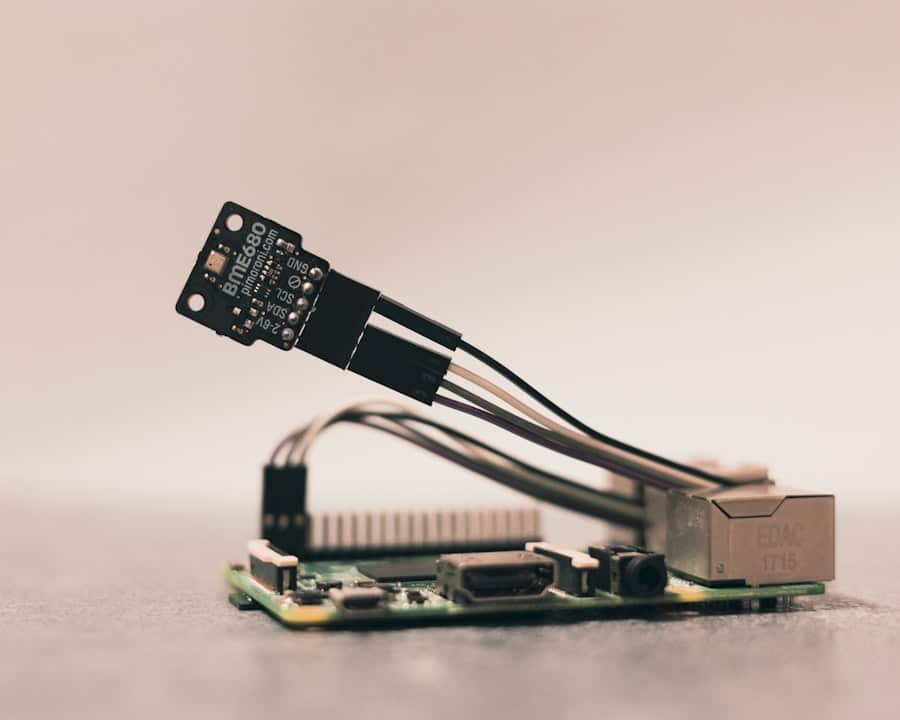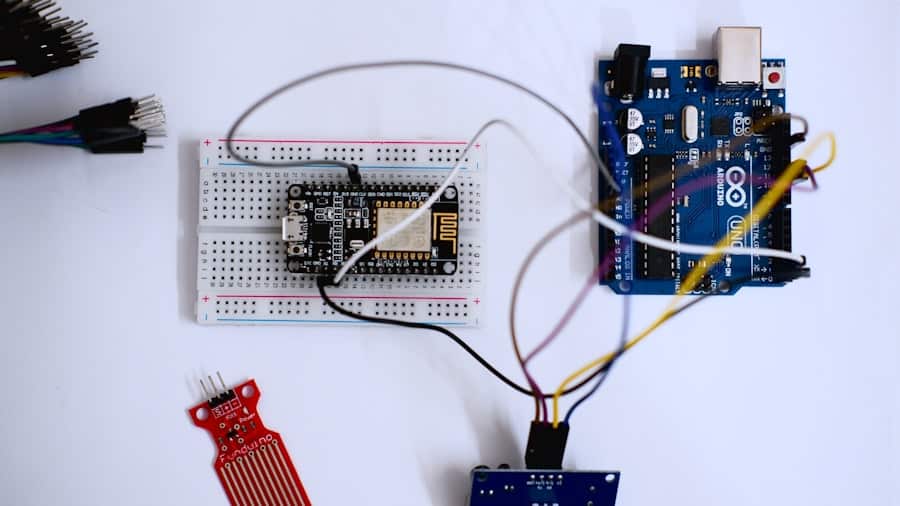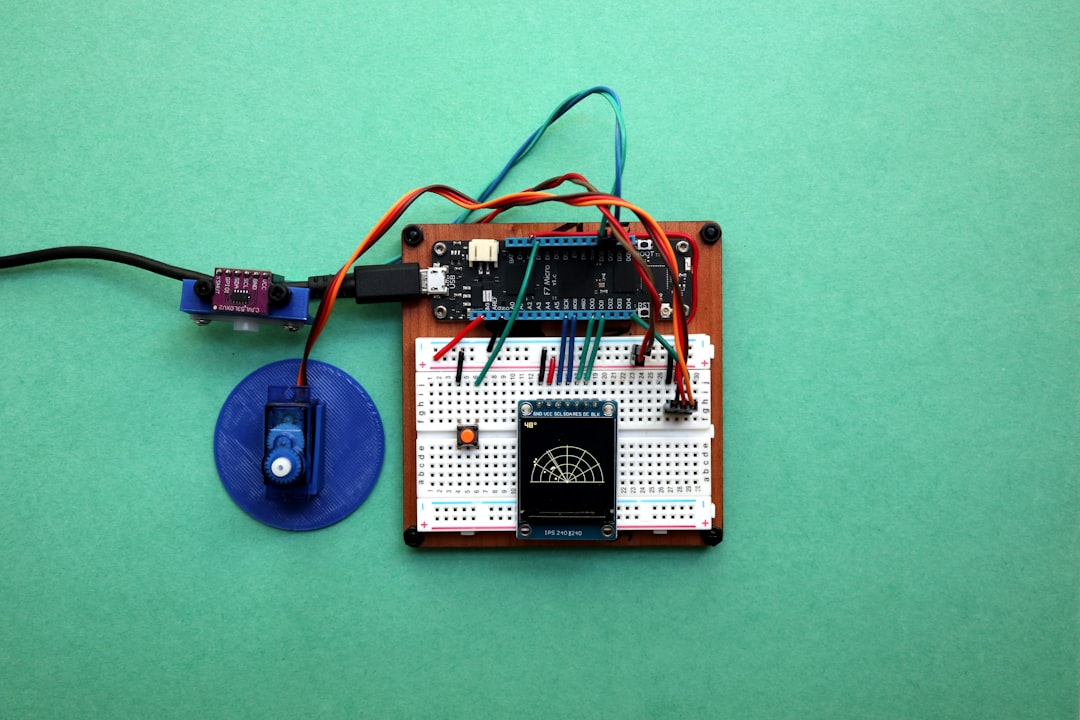Quantum sensors represent a groundbreaking advancement in measurement technology, leveraging the principles of quantum mechanics to achieve unprecedented levels of sensitivity and precision.
This allows them to detect minute changes in physical quantities, such as gravitational fields, magnetic fields, and time, with remarkable accuracy.
As the demand for precise navigation systems continues to grow in various sectors, including aerospace, maritime, and autonomous vehicles, the potential of quantum sensors to revolutionize navigation is becoming increasingly apparent. The development of quantum sensors is not merely an academic pursuit; it has practical implications that could reshape industries. For instance, in environments where traditional navigation systems falter—such as urban canyons or underwater—quantum sensors can provide reliable alternatives.
Their ability to function without reliance on external signals makes them particularly valuable in scenarios where GPS is unreliable or unavailable. As researchers continue to explore the capabilities of quantum sensors, their integration into navigation systems could lead to safer and more efficient travel across multiple domains.
Key Takeaways
- Quantum sensors offer highly precise measurements by leveraging quantum mechanics principles.
- GPS navigation faces limitations such as signal loss and vulnerability to interference.
- Quantum sensors improve navigation accuracy by detecting subtle changes in gravitational and magnetic fields.
- Current uses include aerospace, defense, and autonomous vehicle navigation.
- Future advancements may overcome existing challenges, potentially revolutionizing navigation systems worldwide.
The Limitations of GPS Navigation
Global Positioning System (GPS) technology has transformed navigation since its inception, providing users with real-time location data and enabling a wide range of applications from personal navigation to military operations. However, despite its widespread use and reliability in many contexts, GPS is not without its limitations. One significant drawback is its vulnerability to signal interference.
Urban environments, characterized by tall buildings and dense infrastructure, can create multipath effects where signals bounce off surfaces before reaching the receiver. This can lead to inaccuracies in positioning data, which can be critical in applications requiring high precision. Moreover, GPS signals can be obstructed or degraded by natural phenomena such as dense foliage or atmospheric conditions.
In remote areas or during adverse weather conditions, users may find themselves without reliable access to GPS data. Additionally, GPS is susceptible to jamming and spoofing attacks, where malicious actors can disrupt or falsify location information. These vulnerabilities highlight the need for alternative navigation solutions that can operate independently of satellite signals and provide accurate positioning even in challenging environments.
How Quantum Sensors Work

Quantum sensors operate on the principles of quantum mechanics, utilizing the behavior of particles at the atomic and subatomic levels to measure physical quantities with exceptional precision. One common type of quantum sensor is based on atomic interferometry, which involves splitting a beam of atoms into two paths and then recombining them. The interference pattern that emerges provides information about the phase shift experienced by the atoms due to external influences such as gravitational fields or magnetic fields.
This technique allows for incredibly sensitive measurements that can detect changes on the order of nanometers or even smaller. Another approach involves using entangled particles, which are pairs of particles whose quantum states are interconnected regardless of the distance separating them. When one particle is measured, it instantaneously affects the state of the other particle.
This phenomenon can be harnessed to enhance measurement precision beyond classical limits. For instance, in magnetometry applications, entangled photons can be used to detect weak magnetic fields with high sensitivity. By exploiting these quantum properties, researchers are developing sensors that can outperform traditional devices in terms of accuracy and reliability.
Advantages of Quantum Sensors for Navigation
The advantages of quantum sensors for navigation are manifold, particularly when compared to conventional systems like GPS. One of the most significant benefits is their ability to operate independently of external signals. This autonomy is crucial in environments where GPS is unreliable or unavailable, such as underwater or in densely built urban areas.
Quantum sensors can provide accurate positioning data without being affected by signal degradation or interference, making them ideal for applications in autonomous vehicles and robotics. Additionally, quantum sensors offer superior sensitivity and precision. For example, quantum gravimeters can measure minute variations in gravitational fields caused by changes in mass distribution underground.
This capability can be utilized for subsurface mapping and resource exploration, providing valuable insights that traditional sensors cannot achieve. Furthermore, the ability to detect changes at a quantum level means that navigation systems incorporating these sensors could potentially provide real-time updates with unprecedented accuracy, enhancing safety and efficiency in transportation systems.
Current Applications of Quantum Sensors
Quantum sensors are already finding applications across various fields, demonstrating their versatility and potential impact on navigation systems. In geophysics, quantum gravimeters are being used to monitor changes in Earth’s gravitational field, which can provide insights into geological processes such as volcanic activity or groundwater movement. These measurements are crucial for understanding natural hazards and managing resources effectively.
In the realm of navigation, quantum accelerometers are being developed to enhance inertial navigation systems (INS). These devices measure acceleration with extreme precision and can be used in conjunction with other navigation technologies to improve overall accuracy. For instance, in aviation, quantum accelerometers could help aircraft maintain precise flight paths even when GPS signals are weak or unavailable.
Similarly, maritime applications are emerging where quantum sensors can assist in underwater navigation for submarines or autonomous underwater vehicles (AUVs), providing reliable positioning data without reliance on surface-based systems.
Challenges and Limitations of Quantum Sensors

Despite their promising capabilities, quantum sensors face several challenges that must be addressed before they can be widely adopted for navigation purposes. One significant hurdle is the complexity of their operation. Quantum sensors often require sophisticated setups involving cryogenic temperatures or vacuum environments to maintain the delicate quantum states necessary for accurate measurements.
This complexity can make them expensive and difficult to deploy in practical applications. Additionally, there are challenges related to scalability and integration with existing navigation systems. While laboratory demonstrations have shown the potential of quantum sensors, translating these results into robust commercial products that can withstand real-world conditions remains a significant task.
Furthermore, integrating quantum sensors into existing infrastructure poses technical challenges that require innovative engineering solutions. As researchers work to overcome these obstacles, it will be essential to develop user-friendly interfaces and reliable calibration methods to ensure that these advanced sensors can be effectively utilized in various navigation contexts.
Future Developments in Quantum Sensor Technology
The future of quantum sensor technology holds immense promise as researchers continue to explore new materials and techniques that could enhance their performance and applicability. One area of active research involves developing miniaturized quantum sensors that can be easily integrated into portable devices or vehicles. Advances in nanotechnology may enable the creation of compact sensors that retain high sensitivity while being more accessible for widespread use.
Moreover, ongoing research into new quantum phenomena could lead to the discovery of novel sensing techniques that surpass current capabilities. For instance, exploring topological materials may yield new types of quantum sensors with enhanced robustness against environmental noise and interference. As these technologies mature, we may see a convergence between quantum sensing and artificial intelligence (AI), where machine learning algorithms analyze data from quantum sensors to improve navigation accuracy and decision-making processes.
Implications for the Future of Navigation Systems
The integration of quantum sensors into navigation systems has far-reaching implications for various industries and applications. As these sensors become more refined and accessible, they could fundamentally change how we approach navigation in complex environments. For instance, autonomous vehicles equipped with quantum sensors could navigate urban landscapes with greater reliability than current systems allow, reducing accidents and improving traffic flow.
In military applications, the ability to operate without reliance on GPS could enhance operational security and effectiveness in contested environments where traditional navigation systems may be compromised. Similarly, in scientific research, improved navigation capabilities could facilitate more accurate data collection in remote or challenging locations, leading to advancements in fields such as geology and environmental science. As we look toward the future, the potential for quantum sensors to revolutionize navigation systems is becoming increasingly clear.
Their unique capabilities promise not only enhanced accuracy but also greater resilience against interference and environmental challenges. As research progresses and practical applications emerge, we may soon witness a paradigm shift in how we navigate our world—one that harnesses the power of quantum mechanics to redefine our understanding of space and movement.
This technology promises to enhance accuracy and reliability in various applications, from autonomous vehicles to personal navigation devices. For those interested in the intersection of technology and health, a related article on the best Android health management watches can provide insights into how wearable technology is evolving to support personal navigation and health tracking. You can read more about it here: Best Android Health Management Watches.
FAQs
What are quantum sensors?
Quantum sensors are devices that utilize principles of quantum mechanics, such as superposition and entanglement, to measure physical quantities with extremely high precision and sensitivity.
How do quantum sensors improve navigation?
Quantum sensors can detect minute changes in acceleration, rotation, and magnetic fields, enabling highly accurate positioning and orientation information without relying on external signals like GPS.
Why is navigation without GPS important?
Navigation without GPS is crucial in environments where GPS signals are unavailable, unreliable, or jammed, such as underwater, underground, inside buildings, or in military operations.
What types of quantum sensors are used for navigation?
Common quantum sensors for navigation include atom interferometers, quantum accelerometers, and quantum gyroscopes, which measure acceleration and rotation with exceptional accuracy.
How do quantum accelerometers work?
Quantum accelerometers use the interference patterns of atoms cooled to near absolute zero to detect changes in velocity, providing precise acceleration measurements.
What advantages do quantum gyroscopes offer over traditional gyroscopes?
Quantum gyroscopes offer higher sensitivity, lower drift rates, and improved long-term stability compared to conventional mechanical or optical gyroscopes.
Are quantum sensors currently used in commercial navigation systems?
While still largely in the research and development phase, quantum sensors are beginning to be integrated into prototype navigation systems and have potential for future commercial applications.
What challenges exist in developing quantum sensors for navigation?
Challenges include miniaturizing the technology for practical use, reducing cost, ensuring robustness in various environments, and integrating quantum sensors with existing navigation systems.
Can quantum sensors completely replace GPS?
Quantum sensors can complement or provide backup to GPS but are unlikely to fully replace GPS due to the global coverage and infrastructure GPS provides; instead, they enhance navigation reliability and accuracy.
What future developments are expected in quantum navigation technology?
Future developments may include more compact and affordable quantum sensors, improved integration with inertial navigation systems, and enhanced algorithms for real-time positioning without external signals.

